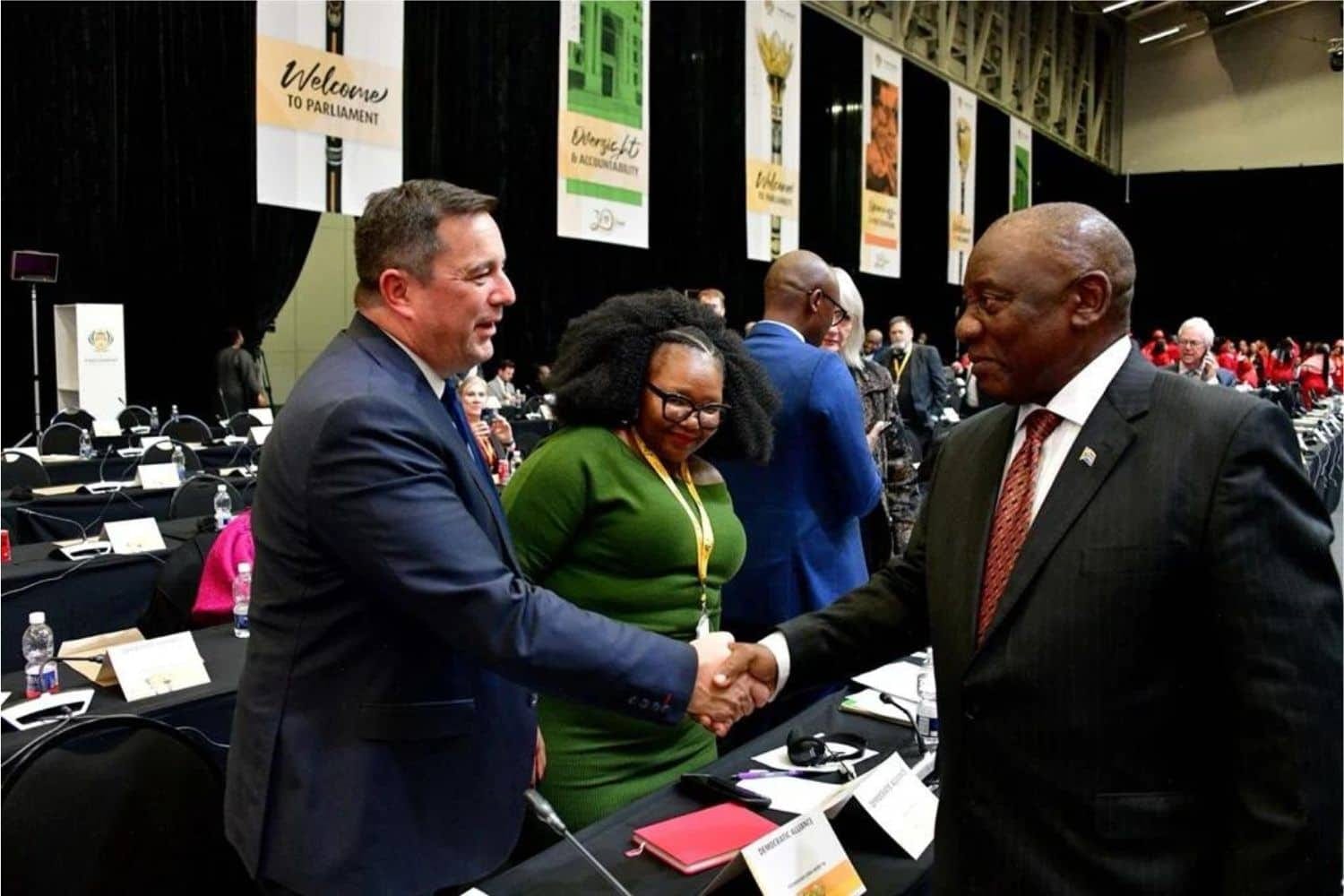By Ollus Ndomu
South Africa’s political landscape has been thrown into turmoil as President Cyril Ramaphosa publicly accused his coalition partner, Democratic Alliance (DA) leader John Steenhuisen, of attempting to establish a “parallel government” in a severe breach of the constitution. The explosive allegation was reportedly made in a letter dated June 25, which has been obtained by local media.
The accusation marks a significant escalation in the tensions within South Africa’s coalition government, which was formed just weeks ago after the African National Congress (ANC) led by President Ramaphosa secured its worst-ever election result. The coalition was meant to stabilize the country’s governance, but the growing rift threatens to plunge it into deeper political instability.
In the letter, President Ramaphosa accuses Steenhuisen of undermining the agreed-upon coalition framework by attempting to set up independent administrative structures, effectively creating a “parallel government.” This move, Ramaphosa argues, violates the South African constitution and jeopardizes the functioning and integrity of the coalition government.
“Such actions are not only unconstitutional but also threaten to destabilize the democratic processes we have worked so hard to establish and maintain,” Ramaphosa wrote. “The coalition agreement was based on mutual respect and adherence to our constitution, and any deviation from this is unacceptable.”
John Steenhuisen has yet to publicly respond to the allegations, but sources within the DA have indicated that the party is preparing a robust defense. They argue that the DA’s actions are within the bounds of the coalition agreement and necessary to ensure effective governance, especially in areas where they feel the ANC has underperformed.
The public fallout comes at a critical time for South Africa, as the country grapples with numerous socio-economic challenges, including high unemployment rates, widespread corruption, and ongoing service delivery issues. The coalition’s ability to function cohesively is crucial for addressing these pressing issues.
Political analysts warn that the row could have significant ramifications for South Africa’s governance. “The coalition was a fragile alliance from the start, given the historical and ideological differences between the ANC and the DA,” said political analyst Thabo Mbeki. “This latest development could lead to a breakdown in the coalition, potentially triggering new elections or leading to a period of political uncertainty.”


